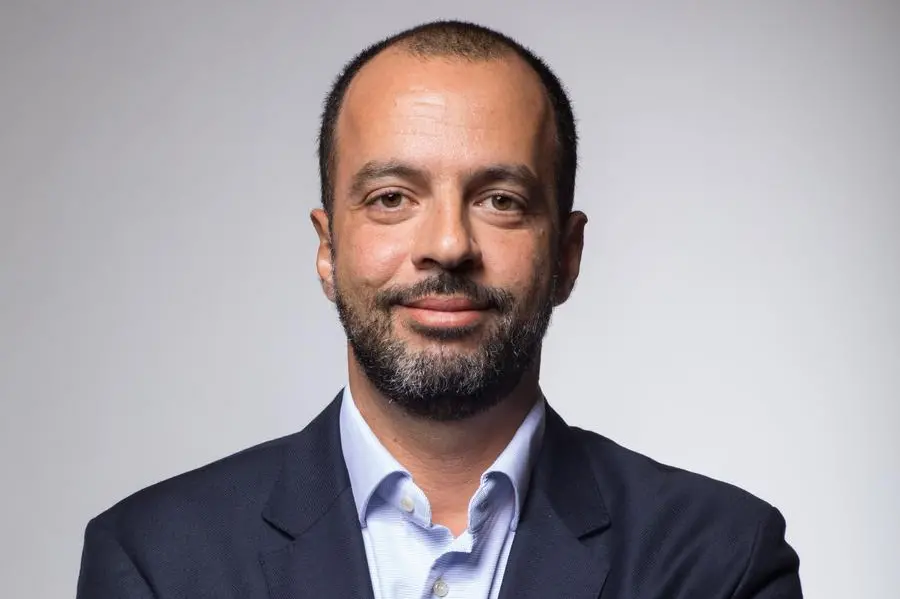PHOTO
Despite difficult economic conditions, Hazem Moussa, the chairman of Contact Financial Holding, a leading non-bank financial services provider based in Egypt, said the company is bracing for further expansion nationwide and growth across different product categories.
“We have invested in our capability infrastructure over the last few years, and that will continue over the next few years across all divisions,” Moussa told Zawya. “Our balance sheet has grown to a size that will allow us to increase outreach and penetration, roll out more products and serve the needs of customers across the board.”
Founded in 2001, Contact provides a wide range of financial services, including consumer and corporate financing, through a large network of subsidiaries and partners. The publicly traded company also offers insurance and debt capital services.
In H1 2022, the company recorded an 18-percent increase in its net income to EGP 258 million, compared with EGP 218 million during the same period in 2021. The total new financing extended in the first half of 2022 rose by 52 percent y-o-y, reaching EGP 5.1 billion, primarily driven by Contact’s consumer finance, working capital, commercial trucks and mortgage products.
Weathering Disrupted Supply
Since March, the Central Bank of Egypt has imposed a set of import restrictions on a vast range of products, including automotives, electric appliances, automotive spare parts, textiles and garments. The move was aimed at easing the pressure on the depreciating local currency amid global economic turmoil spawned by the Russian war on Ukraine, but this has resulted in supply shortages. Last month, however, the CBE began to ease some of the restrictions to curb inflation.
“[These are] difficult times, but our industry and the segments we are in are positioned for growth,” Moussa said. In July, consumer loans extended by Contact reached a total of EGP 501 million, accounting for more than one-third of the consumer financing market, according to the latest monthly figures released by Egypt’s Financial Regulatory Authority.
Product Diversification: A Key to Growth
A strategy based on product diversification has also allowed Contact to weather the current challenges, according to Moussa. He cited the large range of products built over the last two years to gain more diversity as a business and to allow customers to access more complementary services at a single location.
Contact’s products include auto loans, home finishing credit, education and healthcare financing solutions as well as wedding and social club membership financing. Through a subsidiary, Contact Shopping, the company is also financing a wide range of retail products with various credit limits, he added.
“We are able to address customer needs from various points. We are able to cover a much broader aspect of the client’s life cycle,” Moussa said.
Moussa also stressed the resilience of the consumer finance industry in a country where nearly two-thirds of the population have no access to banking services. “There is a lot of demand that allows you to grow regardless of how the market is during these times,” said Moussa.
In recent years, the Egyptian government has been encouraging the growth of non-banking financial service providers as part of a broader policy aimed at achieving financial inclusion and formalizing access to finance. In H1 2022, the number of consumers who received credit from non-banking financial service providers jumped to more than 1.5 million, compared to less than 703,000 in H1 2021. The total amount of consumer credit extended almost doubled in H1 2022, reaching more than EGP 16.4 million, compared with the same period the previous year.
“When we started Contact 21 years ago, there were no players in the markets. [There were] just banks with very limited offerings. It is great to see so many players now,” he said.
However, Moussa warned of potential distortion of the consumer finance market if newcomers focus only on growth rather than the sustainability and the profitability of their business models. “Over the last year, there has been a vibrant market in terms of investment flowing into fintech and consumer lenders specifically. It [falls to] us, as players in the industry, to ensure that we are building a strong foundation [rather than] growing at any cost.”
Debt Capital Market Still in Its Infancy
Contact has also been a key player in Egypt’s debt capital market since 2005. “We have done several issuances for real-estate developers over the last seven years, but car loan securities are still the biggest for Contact,” Moussa said.
The company’s CEO recently announced plans to close a securitization bond issuance of EGP 1.5 billion by the end of October in the form of sukuk to finance car purchases. With this issuance, the company will have issued a total of sukuk worth EGP 5.251 billion this year alone, according to local media.
Despite this growth, Moussa underscores the limitations of Egypt’s young debt capital market. “There is no active market for debt instruments, whether securities, bonds, or sukuk, and that limits the type and size of investors that would come to the market,” he said. “There is still a long way to go to grow the investor base and to have an active secondary market.”
Looking ahead, Moussa says his company is proceeding with its expansion plans across Egypt. “We have expanded substantially all over the country, adding branches in all governorates [as well as] in smaller towns and villages,” he said. “We have over 65 branches and counting, and we are on the way to cover every part of the country.”
The company is also working on upgrading its digital outreach to give customers a seamless online experience, he added. “Our app has been developed, and new versions will be released over the next few months so that our customers can get on board and get their financing entirely digitally, from the start to the end.”
(Reporting by Noha El Hennawy; editing by Seban Scaria)





















